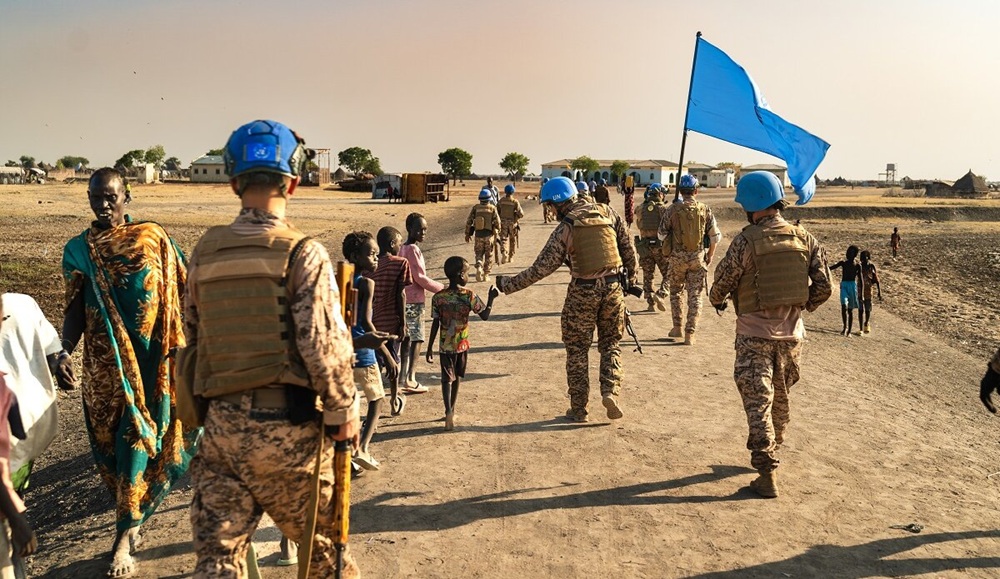
The United Nations Mission in South Sudan (UNMISS), in collaboration with the Government of South Sudan, has conducted a joint assessment mission to evaluate the growing humanitarian crisis among displaced families in Bazia, Western Bahr El Ghazal State.
The mission followed the mid-October 2025 clashes between the South Sudan People’s Defense Forces (SSPDF) and opposition forces in Nagero County, Western Equatoria, which forced over 16,000 people to flee their homes and seek safety across the border in Bazia.
UNMISS peacekeepers and government officials traveled more than 70 kilometers to reach the remote community, where they found widespread suffering—acute food shortages, scarcity of clean water, limited healthcare access, and a complete lack of educational opportunities.
“We joined this government-led delegation, and our Bangladesh peacekeepers conducted a free medical camp and distributed dignity kits to women,” said Susan Okello, UNMISS Protection, Transition, and Reintegration Officer.
“As a Mission, we remain committed to supporting the government in strengthening security so these families can return home.”
Read Also: South Africa, UN FAO partner on STI roadmap to transform agrifood systems
The scale of the displacement was described as far worse than expected.
“We were not expecting such a large number of people in desperate need of urgent assistance,”
said Musa Barsham, Chairperson of the Relief and Rehabilitation Commission.
“Their condition is dire, yet we have no immediate resources to support them. We appeal to all people to help.”
According to Dr. Francis Michael Hassan, State Minister of Health and Chairperson of the Government Committee, the team discovered that among those displaced were around 700 schoolchildren, including 41 candidates preparing for their Primary Eight exams.
“Our findings will be compiled into a report to be presented to the government for further intervention,”
Dr. Hassan stated.
“They need all the help they can get, particularly the children who should return to school as soon as possible.”
For now, the displaced families of Nagero County remain in Bazia—tired, uncertain, but hopeful that peace and stability will soon allow them to return home.
“We are here because of insecurity,” said Alex Marko Nazamba, Executive Director of Nagero County and one of the displaced.
“We need the Nagero County Commissioner to return and assure us of our safety—and then we will go back.”





